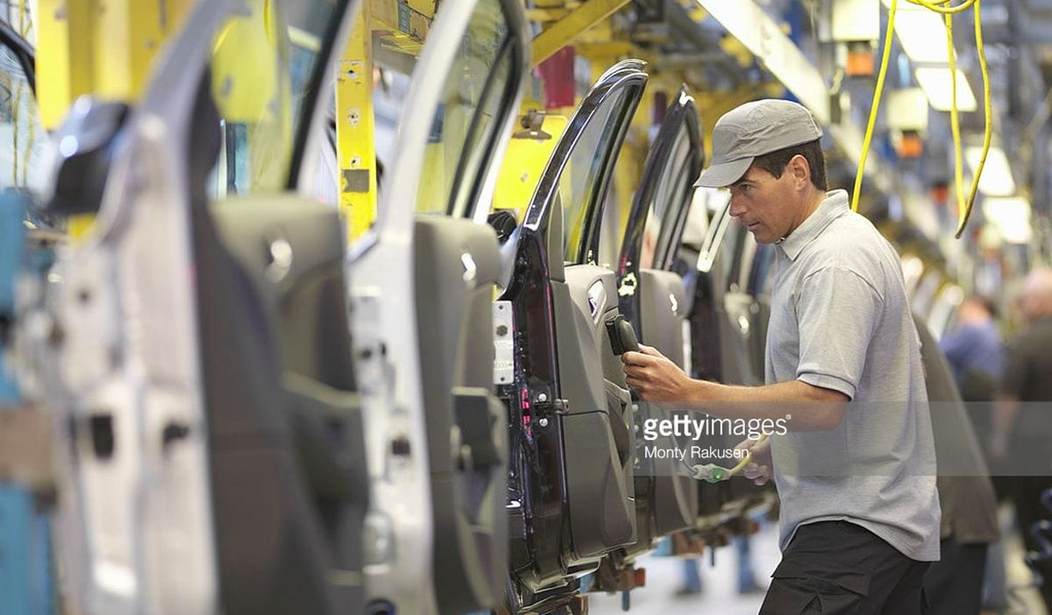Mississippi workers at a Nissan plant in Canton voted overwhelmingly against joining the UAW. The vote was another setback for the union that has yet to win a vote to unionize hourly employees at a foreign-owned auto plant in the south.
The vote at the Canton plant could leave the UAW weakened ahead of contract negotiations with the Detroit Three automakers in 2019, when many analysts are predicting a cyclical slump for U.S. auto sales.
The last failed UAW vote in the U.S. South, at a Volkswagen AG (VOWG_p.DE) plant in Chattanooga in 2014, was far closer than the tally in Mississippi.
Pro-union workers say the Nissan plant – which builds Nissan Murano sport utility vehicles, commercial vans, and Titan and Frontier pickup trucks – has a poor safety record and the automaker moved them to a 401(k) defined retirement plan from a traditional pension fund.
The UAW had put 10 years of groundwork into the vote at the Japanese automaker’s Mississippi facility, after two unsuccessful attempts at a Nissan plant in Tennessee, only to fall well short in a bitterly contested campaign that the union maintained was a continuation of the civil rights struggle of the 1960s.
Nissan said the tally of votes, which was overseen by the U.S. National Labor Relations Board (NLRB), was 2,244 votes against unionization to 1,307 in favor.
“With this vote, the voice of Nissan employees has been heard,” Nissan said in a statement. “They have rejected the UAW and chosen to self-represent, continuing the direct relationship they enjoy with the company.”
The UAW has maintained that Nissan has illegally threatened workers with the closure of their plant or the loss of their jobs if they voted in favor of unionization, a claim Nissan hotly denies. That claim has been backed by a number of complaints lodged by the NLRB.
The union said in a statement it is asking the NLRB to proceed with a trial to “stop Nissan’s serial commission of unfair labor practices in Mississippi.”
The union claims in fresh charges filed with the NLRB that Nissan “conducted repeated captive audience meetings” and played “virtually non-stop anti-union videos” ahead of the vote.
“The result of the election was a setback for these workers, the UAW and working Americans everywhere, but in no way should it be considered a defeat,” UAW president Dennis Williams said in a statement.
The union thinks it’s unfair if the company makes any attempt to lobby workers not to unionize. They should sit down, shut up, and allow union reps to propagandize against them.
That obviously didn’t happen. The millions of dollars spent by UAW over the last ten years trying to unionize the workers at Canton came to naught.
In desperation, the union tried to tie the organizing fight to the battles for civil rights in the south.
In Mississippi, the UAW waged a campaign that married worker rights with civil rights in the hope it would resonate with a workforce of 6,400 that includes many African Americans. It enlisted the support of the NAACP, U.S. Senator Bernie Sanders, I-Vt., actor Danny Glover, local clergy and politicians. The UAW and those supporters waged a pro-union campaign that compared itself to the civil rights movement.
Some of the pastors and community rights activists who have spoken in favor of the UAW in recent years were paid thousands of dollars. Nevertheless, the campaign was successful to the degree that it put tremendous public pressure on Nissan to work with the UAW and declare neutrality on union organizing activities — a legal term that means the company decides not to oppose the union.
But Nissan never caved. It held its ground and waged a fierce anti-union campaign.
You’d have to look back to the 1960s — perhaps the 1940s — to find an organizing campaign that the UAW tied so closely to civil rights, said Harley Shaiken, a professor at the University of California-Berkeley who specializes in labor issues.
“I have seen it before, but it’s become increasingly rare in recent years,” Shaiken said. “You would have to look at something right at the birth of the UAW.”
But the tactic didn’t work. When union backers passed out T-shirts implying that a vote against a union was a vote for slavery, some workers pushed back.
The appeal of unions used to be to protect workers from unfair bosses and dangerous working conditions. The auto workers in the south who have refused to unionize in election after election seem reasonably happy with the management they’ve got. I’m certain that if there are safety issues at the plants, management encourages workers to report them. Workers injured on the job has become a huge expense and it is in the company’s interest to make conditions as safe as possible.
Are unions even necessary anymore? Liberals love them because while the rank and file may split their vote, the bosses vote Democratic and every election won means more money unions can spend to elect liberal Democrats.
But unions aren’t supposed to be for labor bosses, although you’d never know it by the lavish lifestyles lived by union presidents. The fact is, unions are losing not because employers are cheating — or threatening.
Unions are losing because the simple fact is workers don’t feel the need for them.










Join the conversation as a VIP Member